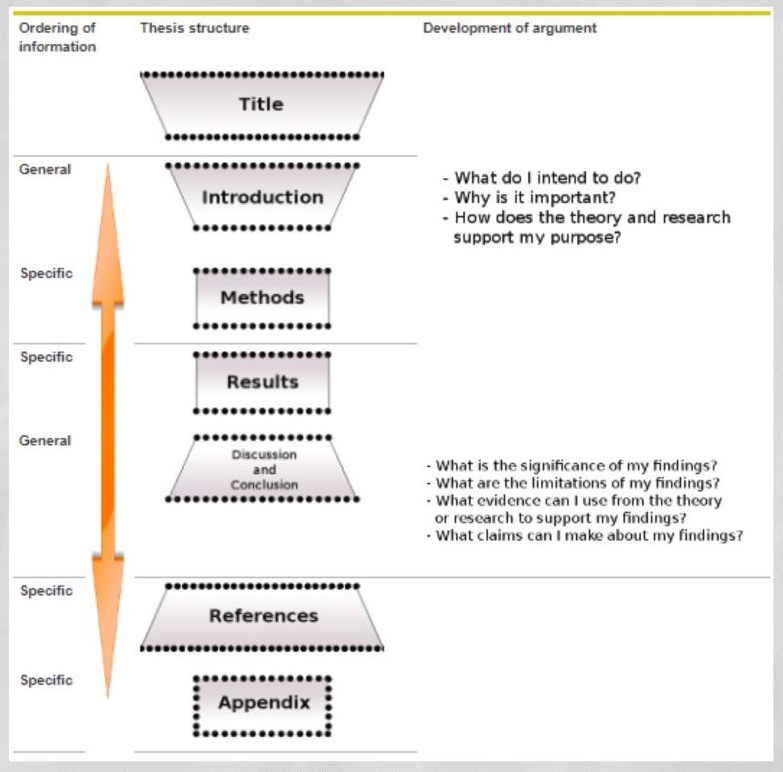
Table of Contents
The human mind, a complex and intricate network, is often overlooked amidst the physical ailments we readily address. Yet, mental health is integral to holistic well-being, and nurses are on the front lines of this often-invisible struggle. A nursing thesis on mental health provides a unique platform to delve into this critical domain, shedding light on crucial issues and driving impactful change. However, the journey from concept to completion can be daunting.
This article acts as a compass, guiding you through the intricacies of writing a stellar nursing thesis on mental health.
What is the Essence of a Nursing Thesis?
The essence of nursing thesis writing lies in contributing to the body of knowledge within the nursing profession. This involves identifying a specific problem or gap in current understanding, developing a research question, collecting and analyzing data, and drawing conclusions that can inform practice, policy, and future research.
A nursing thesis on mental health, for example, might explore the effectiveness of a new intervention for anxiety in adolescents, the impact of stigma on access to mental health services, or the lived experiences of individuals with chronic mental illness.
This process of inquiry is crucial for advancing the field of nursing and improving the health outcomes of patients. A strong nursing thesis will demonstrate a deep understanding of the chosen topic, a rigorous research methodology, and the potential to make a real-world difference.
While a nursing thesis on mental health may focus on a specific area of practice, it will always be grounded in the core values of the nursing profession: compassion, advocacy, and the promotion of well-being.
Guidelines for Crafting a Compelling Nursing Thesis on Mental Health
1. Choosing a Relevant and Impactful Topic:
The first step in crafting a compelling nursing thesis on mental health is selecting a topic that resonates with your passion and interests. Consider the following:
- Current Trends: Explore emerging mental health challenges like the rise of anxiety and depression, the impact of technology on mental well-being, or the increasing burden of mental health disorders in specific populations.
- Gaps in Knowledge: Identify areas where research is lacking, such as understudied mental health conditions, effective interventions for diverse populations, or the role of cultural factors in mental health outcomes.
- Personal Experience: Your personal experiences as a nurse can inform your research. Perhaps you witnessed a particular mental health crisis, encountered limitations in existing care models, or witnessed the impact of a specific intervention on patients.
Once you have a potential topic, refine it into a focused research question. This question should be specific, measurable, achievable, relevant, and time-bound (SMART). For example, instead of “Exploring mental health in the elderly,” a more focused question could be “What are the effects of a mindfulness-based intervention on depression symptoms in older adults living in assisted living facilities?”

2. Building a Solid Foundation: Literature Review and Conceptual Framework:
A comprehensive literature review is the cornerstone of any nursing thesis on mental health. It provides a roadmap of existing knowledge, identifies key concepts, and establishes the relevance and contribution of your research.
- Focus on Relevant Literature: Limit your review to research articles, books, and other reputable sources directly related to your chosen topic.
- Identify Key Themes: Analyze the existing literature to identify major themes, theoretical frameworks, and research gaps.
- Establish a Conceptual Framework: Use the findings from your literature review to develop a theoretical framework that provides a conceptual foundation for your research. For example, if you are studying the effectiveness of a specific therapy, you might utilize a theoretical framework like the Transtheoretical Model to explain stages of change.
3. Designing a Robust Methodology:
The methodology section outlines how you will answer your research question. This section should be clear, detailed, and reproducible.
- Quantitative or Qualitative Methods: Choose a research design that best suits your research question. For example, quantitative methods like surveys or experiments are useful for measuring the prevalence of mental health disorders or the effectiveness of interventions. Qualitative methods, such as interviews or focus groups, provide rich insights into lived experiences and perspectives.
- Data Collection Techniques: Specify the tools and methods you will use to collect data, such as questionnaires, interviews, or observations.
- Ethical Considerations: Address all ethical considerations, including obtaining informed consent, protecting participant privacy, and ensuring the safety and well-being of all individuals involved.
4. Analyzing Data and Interpreting Findings:
Once you have collected your data, analyze it using appropriate statistical or qualitative techniques. Ensure that your data analysis methods align with your chosen research design and answer your research question.

- Descriptive Statistics: Use descriptive statistics to summarize and present your data, including measures of central tendency (e.g., mean, median, mode) and dispersion (e.g., standard deviation, range).
- Inferential Statistics: Use inferential statistics to draw conclusions about the population based on your sample data, such as t-tests, ANOVAs, or regressions.
- Qualitative Data Analysis: For qualitative data, use techniques like thematic analysis, content analysis, or discourse analysis to identify patterns, themes, and meanings in your data.
5. Weaving a Compelling Narrative: Discussion and Conclusion:
The discussion section is where you interpret your findings and discuss their significance in relation to existing literature and your conceptual framework.
- Connect Findings to Existing Literature: Analyze your findings in light of previous research and highlight how your study contributes to the body of knowledge.
- Discuss Limitations and Implications: Acknowledge any limitations of your research, such as small sample size or specific study design, and discuss the implications of your findings for nursing practice, research, and policy.
- Offer Recommendations: Based on your findings, provide specific recommendations for future research or practice.
The conclusion summarizes your key findings and restates your research question. It should be concise and impactful, leaving a lasting impression on your reader.
6. The Crucial Elements of a Stellar Thesis:

While the above steps offer a general framework, several key elements contribute to a truly stellar nursing thesis on mental health:
- Clarity and Conciseness: Ensure your writing is clear, concise, and easy to understand. Avoid jargon and use precise language.
- Logical Flow and Organization: Structure your thesis with clear headings and subheadings, providing a logical progression of ideas.
- Evidence-Based Reasoning: Support all claims with solid evidence from reputable sources, including research articles, clinical guidelines, and expert opinions.
- Ethical Considerations: Always prioritize the ethical treatment of participants and uphold the highest ethical standards in research.
- Professional Presentation: Pay attention to formatting, referencing, and proofreading to ensure a professional and polished presentation.
7. Overcoming Common Challenges:
Writing a nursing thesis on mental health can present unique challenges:
1. Finding a Focused and Novel Research Question: The vastness of mental health topics can be overwhelming.
Solution: Start early with brainstorming! Explore various areas within mental health nursing, such as specific diagnoses, interventions, or patient experiences. Consider the current literature and identify gaps or areas requiring further exploration. This will help you formulate a research question that is both meaningful and unique.
2. Accessing and Analyzing Complex Data: Mental health research often involves qualitative data, requiring specific analysis techniques.
Solution: Seek guidance from experienced researchers! Connect with faculty members or mentors in qualitative research methods. Utilize software programs like NVivo to aid in organizing and analyzing qualitative data.
3. Balancing Literature Review with Original Research: A nursing thesis on mental health requires a comprehensive review of existing knowledge while also generating new insights.
Solution: Prioritize the literature review early on! This will provide a solid foundation for your research question and methodology. Remember to connect your findings to existing literature and highlight how your study contributes to the field.
4. Maintaining Ethical Considerations in Mental Health Research: Working with vulnerable populations requires extra care in protecting their rights and privacy.
Solution: Ensure you understand and adhere to ethical guidelines! Consult with your university’s research ethics board and familiarize yourself with informed consent procedures. Be mindful of participant confidentiality and data security.
5. Balancing Scientific Rigor with Sensitivity: A nursing thesis on mental health must be scientifically sound while remaining sensitive to the complex nature of mental illness.
Solution: Seek feedback from experts in both research and mental health! This will ensure your language is both accurate and respectful of the individuals you are studying. Remember, empathy and understanding are essential for this type of research.
6. Managing Time Constraints: A nursing thesis on mental health is a time-consuming undertaking.
Solution: Create a realistic timeline and stick to it! Break down the project into smaller, manageable tasks. Prioritize your efforts and seek support from peers or mentors.
7. Overcoming Personal Challenges: Writing a nursing thesis on mental health can be emotionally demanding, especially for individuals with personal experiences with mental illness.
Solution: Seek support from professionals! Therapists or counselors can provide valuable guidance and emotional support. Remember to prioritize self-care and take breaks when needed.
By understanding and overcoming these challenges, you will be well-equipped to contribute valuable insights to the field of mental health nursing through your thesis. Your nursing thesis on mental health has the potential to make a real difference in the lives of patients and their families.
Seeking Guidance and Support:

Remember, you are not alone in this journey. Seek guidance and support from your faculty advisor, peers, and librarians.
- Faculty Advisor: Your advisor is your primary source of guidance and feedback. Regular meetings are essential for staying on track.
- Peer Support: Connect with other students working on their nursing theses on mental health to share ideas and support.
- Library Resources: Librarians are valuable resources for finding relevant literature, navigating databases, and understanding research methodologies.
The Impact of a Stellar Thesis:
A stellar nursing thesis on mental health has the potential to significantly impact the field:
- Advance Knowledge: Your research can contribute to a better understanding of mental health issues, leading to more effective interventions and policies.
- Improve Patient Care: Your findings can inform evidence-based practices and enhance the quality of care for individuals with mental health concerns.
- Advocate for Change: Your work can raise awareness of mental health issues and advocate for increased resources and support.
Examples of Topics for a Nursing Thesis on Mental Health
The following are examples of compelling topics to consider for your nursing thesis on mental health.
- The Impact of Mindfulness-Based Interventions on Anxiety Levels in Hospitalized Patients: A Nursing Thesis on Mental Health. This topic explores the efficacy of mindfulness techniques in managing anxiety among hospitalized patients.
- The Role of Nurses in Early Intervention for Children with Autism Spectrum Disorder: A Nursing Thesis on Mental Health. This thesis investigates the potential of nurses in identifying and providing support for children with ASD at an early stage.
- Exploring the Experiences of LGBTQ+ Individuals with Depression: A Nursing Thesis on Mental Health. This thesis delves into the unique challenges and experiences of LGBTQ+ individuals with depression and how nurses can better support them.
- Examining the Effectiveness of Telehealth Therapy in Reducing Stigma and Increasing Access to Mental Health Care: A Nursing Thesis on Mental Health. This topic investigates the potential of telehealth therapy in addressing mental health stigma and increasing accessibility to care.
- The Influence of Trauma-Informed Care on Patient Outcomes in a Psychiatric Setting: A Nursing Thesis on Mental Health. This thesis explores the impact of trauma-informed care practices on the well-being and recovery of patients in psychiatric settings.
- Developing a Culturally Sensitive Nursing Intervention for Managing Postpartum Depression in Diverse Communities: A Nursing Thesis on Mental Health. This thesis focuses on creating culturally appropriate interventions for postpartum depression, considering the diverse needs of different communities.
These topics offer a starting point for your nursing thesis on mental health. Remember to select a topic that interests you and aligns with your research goals.
Writing a nursing thesis on mental health is a challenging but rewarding journey. By following the guidelines outlined in this article, you can navigate the labyrinth of research and emerge with a stellar thesis that makes a real difference in the lives of individuals facing mental health challenges. Remember, your research has the power to illuminate the darkness, break down stigma, and empower individuals to reclaim their mental well-being.
This journey is not merely about completing a thesis; it is about contributing to a more compassionate and informed world where mental health is valued and prioritized. As you embark on this important endeavor, remember that your voice and your research have the power to change lives.
Get Help in Writing a Nursing Thesis on Mental Health
Nursing thesis writing is a demanding assignment that also takes time to accomplish. But, why go through all that stress when you can simply get custom nursing thesis writing help from PhD Nurse Writer? We can help you in crafting an original and engaging nursing thesis on mental health for excellent academic performance. Besides, our writers can also assist you in writing nursing essays, dissertations and research papers.





